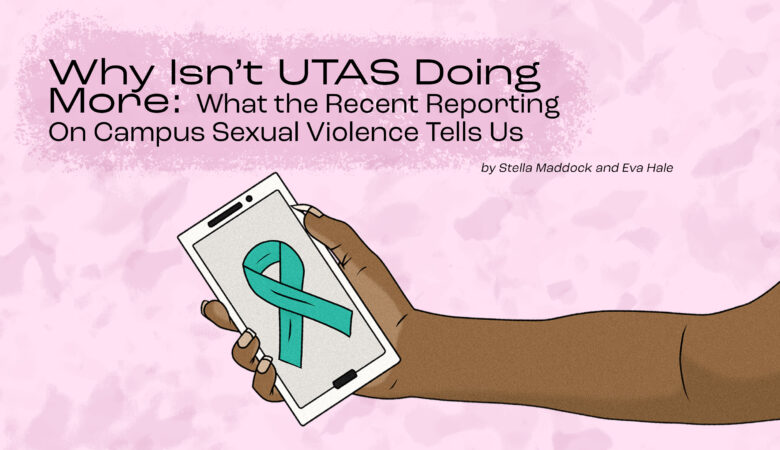Education is a right that every person should have access to, however, institutions are often hostile environments for the disabled; UTAS is no exception. This has been exemplified during the Covid-19 pandemic which has been referred to as a “mass-disabling” event.
In my first year of University I was dealing with several undiagnosed conditions which were impeding my progress in the classroom. Until recently, courses within the Fine Arts at UTAS have had a maximum of three absences before an automatic failure of the unit; each day of nausea, migraines or pain I would evaluate whether I should skip the class, or save my absence for a “worse” day. One morning, I lay on the (filthy) floor of the Art School’s bathrooms in a foetal position in an attempt not to vomit. Realising the day would amount to nothing, I went to talk to my tutor. He looked me up and down with an air of disappointment and let me go home. I was judged on my ability to be in the classroom that day.
While UTAS does have accommodations for its disabled students, these can be difficult to access and are not always adequate. Often you will need a doctor to sign off on your illnesses, this relies on diagnoses which are, in and of themselves, inaccessible. During the writing of this article I invited other disabled and chronically ill students or alumni to weigh in on UTAS’s practices in regards to disabled students. Several current and past students cited feeling “traumatised” after interactions with disability officers, while others have been ignored completely. This is alarming; our first suggested course of action when joining the university as disabled students is direction to obtaining a LAP (Learning Access Plan). Even in these supposed supportive environments, we still feel the burden of ableism.
LAPs cover many issues which might affect disabled people which can include transcription of lectures, extra time during assignments and exams, and access to specialised equipment. As helpful as some of these resources can be there are many gaps which are unfilled. Some disorders under the Neurodivergent umbrella, ADHD (Attention Deficit Hyperactivity Disorder), for example, can leave students unable to keep up with coursework due to issues with memory and executive functioning. With the focus of university shifting to self-directed learning during the pandemic, some students feel abandoned and directionless.
Coursework is taught never with a neurodivergent person in mind. Information is retained better by many people through doing hands on tasks and peer-to-peer interaction. Many course structures do not include these various modes of learning. Grading criteria also feels exclusionary of neurodivergence, with rubrics that have little distinction between grades and unit outlines being difficult to navigate. An individual with ASD (autism spectrum disorder) told me of their struggle of being graded on demeanor and eye contact while doing a presentation, things which are a struggle for autistic individuals.
One past student described being forced into attendance at the Hedberg whilst no lifts accommodated for their electric wheelchair. Hunter Street’s main access lift is small and outdated, late last year it would stop working seemingly at random for months on end. This lift would be extremely difficult to navigate with any larger adaptive or mobility devices. Another student spoke of being dismissed when requesting the ability to do part time during an honors program, forcing them to leave university altogether.
Finding work as a disabled person is difficult and demoralizing. To obtain AUS Study you must be doing a “full course load” (three or more units). This is simply impossible for a lot of disabled students; we are completely capable of doing well but get fatigued and overwhelmed when expected to do as much as our abled peers. This results in us having little to no income during our degrees unless we have employment, which, as stated, is difficult to obtain. Jobseeker payments are an option, but are frustrating even with a disability provider, attending bi-weekly appointments is a hurdle we shouldn’t have to jump. Personally I have seen many members of my cohort move on to other universities where they have more support.
How could UTAS help accommodate students?
Disability officers at each campus who are trained in nuances of chronic health issues and impairments.
A reduced focus on diagnoses to prove disability.
An overhaul of each campus to make them safe for all to navigate.
Flexibility with what constitutes “full-time” schooling.
Flexibility with attendance and the entire set of coursework being accessible online for students who cannot attend class in person.
Making classrooms safer for students with sensory issues, i.e. less fluorescent lighting.
UTAS is financially capable of better supporting its disabled students and cohort but consistently chooses to spend money elsewhere. UTAS is complicit in the oppression of disabled people. Disabaled students are sick of self advocating, putting in extra effort to meet the school’s demands and pressure to conform to ableist ideas of education.








